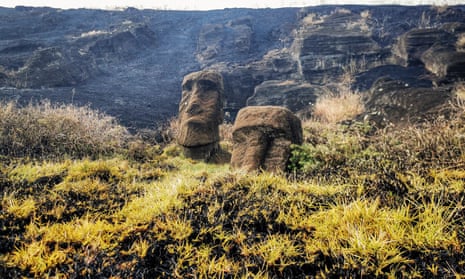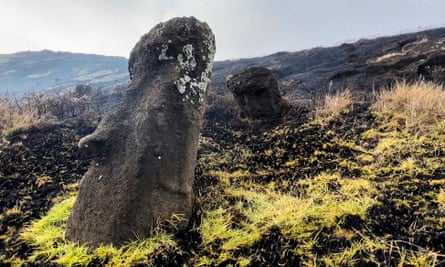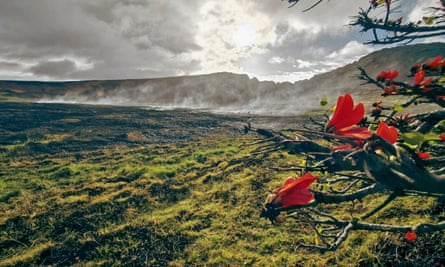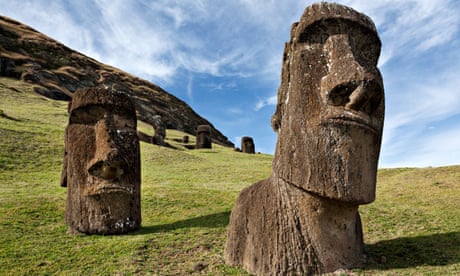Easter Island fire causes ‘irreparable’ damage to famous moai statues
Easter Island fire causes ‘irreparable’ damage to famous moai statues
Forest fire that swept through more than 100 hectares of national park, with some moai ‘totally charred’

A forest fire that tore through part of Easter Island has charred some of its monumental carved stone figures, known as moai, authorities have said.
The blaze reportedly swept through the Rapa Nui national park, 3,500km (2,175 miles) off the west coast of Chile, causing “irreparable” damage to the archaeological site.
“More than 100 hectares (247 acres) were affected in the Rano Raraku sector which includes the wetland and moai sector,” the national park said in a statement on its official Facebook page on Thursday.
Carolina Perez, cultural heritage undersecretary, said the island - which lies 3,500km (2,175 miles) off the west coast of Chile - had been razed by flames since Monday.
Rapa Nui has more than 1,000 stone statues – giant heads that are believed to have first been carved in the 13th century by the island’s original inhabitants. The area around the Rano Raraku volcano, a Unesco world heritage site, was reportedly the most affected.
An estimated several hundred moai are in that area, as well as in the quarry where the stone used to carve the sculptures is extracted.

Ariki Tepano, director of the Ma’u Henua community in charge of the management and maintenance of the park, described the damage as “irreparable”.
“The moai are totally charred and you can see the effect of the fire upon them,” he said.
Easter Island mayor, Pedro Edmunds Paoa, said he believed the fire was “not an accident,” telling local broadcaster Radio Pauta that “all the fires on Rapa Nui are caused by human beings.”
“The damage caused by the fire can’t be undone,” Edmunds Paoa added. “The cracking of an original and emblematic stone cannot be recovered, no matter how many millions of euros or dollars are put into it.”
The park said a “shortage of volunteers” hindered the ability of officials to get the fire under control. The total damage to the site has yet to be assessed.
The fire comes just three months after the island was reopened to tourism on 5 August, after two years of closure due to Covid-19.

Before the pandemic, Easter Island – where the main livelihood is tourism – received 160,000 visitors a year, on two daily flights.
But with the arrival of Covid-19 in Chile, tourist activity was completely suspended.
The island was long inhabited by Polynesian people, before Chile annexed it in 1888. It is thought the monuments represent the living ancestors of Easter Island’s Polynesian people and were once linked to ritual activity, forming a focal point for communities.


Comentarios
Publicar un comentario